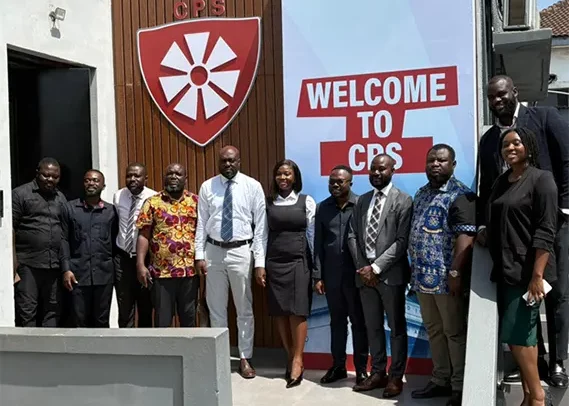Dr. Adu Owusu Sarkodie (3rd R), Dr. Prince Adjei (4th R) and other officials
The government has been urged to create an enabling environment for businesses to thrive in order to provide sustainable jobs especially in key sectors of the economy for Ghanaians.
In a critical review of the 2026 Budget Statement and Economic Policy by the Centre for Policy Scrutiny (CPS), senior lecturer at the Department of Economics, University of Ghana, Dr. Prince Adjei, said it is imperative for the government to increase economic growth and create more jobs to improve the macroeconomic environment.
According to him, the 2026 Budget delivers clear gains in job creation and skills development citing the example of the, ‘The Big Push Infrastructure Programme’ which is expected to drive activity in construction and logistics, and create about 800,000 jobs in 2026.
He, however, said that in spite of the gains in job creation, most of them may be temporary, hence the government must make efforts to create more sustainable jobs through skills training to help improve the livelihoods of people.
He said, “The decline in interest rates, improved credit availability, and enhanced liquidity together with financial sector recovery create a favourable environment for private firms to expand operations and employment”.
Dr. Agyei further noted that the viability and credibility of every major policy introduced by the government in 2025 could be executed if allocations are disbursed timely.
For his part, Executive Director of the Centre for Policy Scrutiny (CPS), Dr. Adu Owusu Sarkodie said expenditure for 2026 is budgeted to grow by 20.1% on commitment basis from GH¢251.74 to GH¢302.46 billion and by 24.8% on cash basis from GH¢266.21 billion to GH¢332.28 billion.
These growth rates he explained, surpasses the 18.4% budgeted increase in revenue and confirm the loosening of fiscal policy in the 2026 Budget in terms of GDP
Dr. Sakodie also recommended the public sector to institutionalise constant evaluation of government programmes to ensure they are managed and adjusted, as necessary, to achieve expected outcomes and urged the government to intensify its revenue collection.
By Ebenezer K. Amponsah


